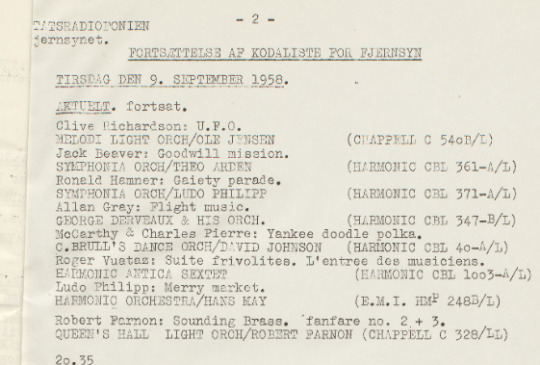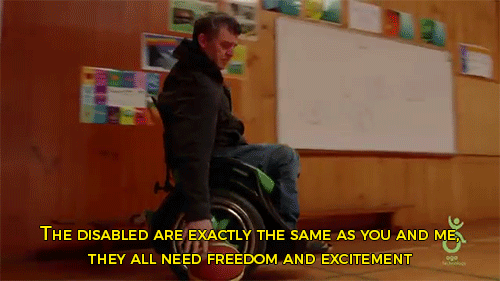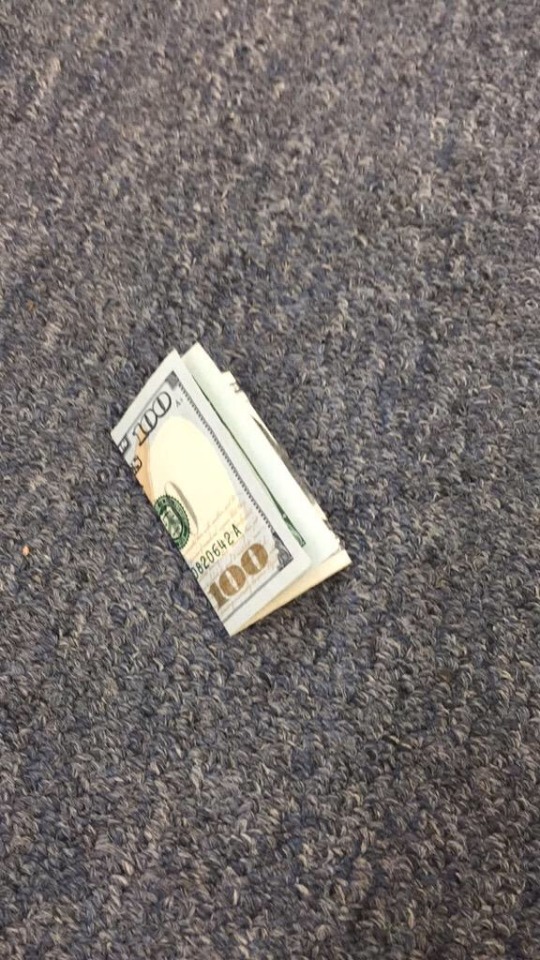Photo










Meet Nova The German Shepherd And Pacco The Ferret, That Are The Unlikeliest Of Best Buds .
50K notes
·
View notes
Audio

Song: Rhythm for You / Yankee Doodle Polka
Composer: Eddy (Eduard) Christiani & Frans Poptie
Director: David Johnson (Dolf van der Linden) conducting Charles Brull’s Dance Orchestra
Record Label: Charles Brull - A Harmonic Private Recording CBL 40
Released: ca. 1952
Location: Galaxy News Radio
Today’s an unusual day, one that only comes once every four years. So leaping into our continuing journey into the unusual, here’s another library music record used in the Fallout series. As with all of the instrumental pieces, Three Dog makes no formal introduction of this song on the radio.

Unusually for library music, this song is listed right alongside the other more familiar vocal tunes in Fallout 3′s end credits. However instead of the plethora of copyright information, artist name, and record labels, all of that is replaced with “Courtesy of APM Music, Inc.”
APM Music is one of the well known providers of production music, combining various music libraries and underscoring countless cartoons, films, and TV shows, yet almost anonymously.
Curiously, of the music reprised from GNR in Fallout 3 into DCR in Fallout 4, the ones that didn’t make the jump all came from APM Music.
More on that later.
As is the case with library music, finding artist and recording information is extremely difficult as these songs were never meant to be sold to the public, instead being exclusively used for the film and TV industry. What follows is an attempt to extricate this information.
Note: Library music is typically identified by composer or emotion. Very little can be confirmed about the musicians who performed on the recording. Because of this, much of the information here for CBL 40 is also applied from my previous explanations on this record label for CBL 37, listed below.
About the composers

Photo of Eddy Christiani on the Dutch Omega Records label.
“Carnaval met jou” (Carnival and you) backed with “Een huis vol met rozen“ (Room full of roses) - met Koor en Orkest o.l.v.(onder leiding van) Frans Poptie - with choir and orchestra led by Frans Poptie

The Eddy Christiani Ensemble in 1954: Wim Jongbloed (piano), Frans Poptie (violin), Eddy Christiani (guitar), Bud van Hooren (drums), Coen van Orsouw (accordion), Tony Herber (string bass), and Kees Noordijk (clarinet)
This is notably the only song in Fallout to have strong Dutch influences. Both Eduard (Eddy) Christiani and Frans Poptie were born in the same year in 1918.
With Christiani being the first European electric guitarist and Frans Poptie a multi-instrumentalist, they first met in 1942 when violinist Van Brinkom leaves the Frans Wouters Dance Orchestra.
It is not until after the struggles of WWII that they form their own band in the early 1950s as the Eddy Christiani Ensemble conducted by Frans Poptie where the wartime restraints on jazz had been lifted. With plenty of accordion work and Christiani singing in the levenslied tradition, they would receive the first gold record awarded in the Netherlands for “Zeemanshart” in 1952.
However, the rise of rock and roll would lead to Christiani returning to the guitar and Poptie going their separate ways albeit amicably in their own bands. They would officially collaborate one last time for a 1956 45 EP, Frans Poptie en zijn solisten in their fine instrumental style.
Illustrating the close similarities between the languages, English speakers may recognize the words in the title for one of their many hits, “Daar bij de waterkant”, otherwise known as “Down by the Riverside”.
For further reading (Dutch-only) on Eddy Christiani and Frans Poptie…
About the conductor
At first, I was not able to uncover much information about the conductor, David Johnson, as his name is shared by several musicians and non-musicians. Presumably he served as a house conductor for Charles Brull, conducting the Charles Brull Dance Orchestra from roughly CBL 40 to CBL 52 and the Harmonic Orchestra from CBL 309 to CBL 353 in the 50s and 60s.
However, a number of sources turned up noting that “David Johnson” was a pseudonym for Dolf van der Linden who also was known as David Gysbert van der Linden, conductor of the Metropole Orchestra
The 1998 book Conductors and Composers of Popular Orchestral Music: A Biographical and Discographical Sourcebook by Naomi and Reuben Musiker mentions that Dolf van der Linden masqueraded as Van Lynn and Daniel de Carlo on Decca, Gerard Blene on Jubilee, Alex Pinto on HMV, and Paul Franklyn, David Johnson, and Guy Brain on other 78s.
An obituary cites the British Musician’s Union and its reach specifically into library music with his non-stop work recording for Paxton, as Nat Nyll for Boosey & Hawkes, and of course as David Johnson for Charles Brull. Indeed many of the same Charles Brull records showing “David Johnson” conducting are also featuring a composition by Dolf van der Linden.
For this record, perhaps he was showing support for his fellow Dutch countrymen by conducting their composition.
The members of the orchestra are not noted. The recording features brass instruments which are not present in photos of Eddy Christiani’s band at the time. In all likelihood, Eddy Christiani played the guitar and Frans Poptie the violin as writers of the composition.
About the recording
While the original record label belonged to Charles Brull, it was eventually acquired by famed UK library label KPM, which is managed in the States by APM Music.
CBL 40 is an odd mixture of spinning at 78 rpm and being made of vinyl, meaning you’d need specialized equipment for playing it.

As far as I can tell, it was first reissued in 1999 as a CD, KPM 0398 Roads to War (1933-1945) Part 1. You may find that a total of 3 songs from Fallout 3 also appear in the track listing. Here, the song picked up a description as Track No. 47:
“European dance band swing”
See my previous posts on the Charles Brull label for further record dating tidbits as CBL 40 is very close to CBL 37.
Charles Brull seems to have also provided discs for broadcast on the BBC as test pattern or test card music. You may recognize the same three tracks appearing under 1954.

To narrow down this date, we once again turn to the Danish Cultural Archive or the Dansk Kulturarv which has digitized the radio set-lists of the Danish Broadcasting Corporation (DR). Evidently, this track has been snubbed from play time, though the reverse side of CBL 40 “Yankee Doodle Polka” (the McCarthy-Pierre composition, not the Duke-Latouche version) is shown as being played 5 times from 1958 to 1960, a clear sign of favoritism.
Meanwhile, the Swedish Film Database records that the “Rhythm for You” composition has enjoyed a longer life, but also snubbed for precedence. From between 1953 and 2009, the song is noted as being used in 5 films ranging from the Swedish Vi tre debutera (1953) to the 2008 Boy in the Striped Pajamas. Since the latter film does takes place in the 1940s during WWII, the song is somewhat anachronistic, though the world of library music has taken great pains (or lack thereof) to obscure the original recording and release dates.
Meanwhile, the flip side “Yankee Doodle Polka” was used in 3 films in the 1950s, the earliest being Flottare med färg in 1952. Since they are two halves of the same record, it pushes back the release date for “Rhythm for You” to 1952 as well.
Listen to the flip side “Yankee Doodle Polka” here. Other library music records used in Fallout:
Jazzy Interlude/Jazz Interlude - Billy Munn - CBL 37
Swing Doors - Allan Gray - CBL 37
Joe Cool/Stars and Teardrops - Nino Nardini - SF 1007
43 notes
·
View notes
Text
if i had three wishes they would all be to make web 2.0 utterly illegal and go back to normal html
160K notes
·
View notes
Photo

(11/11) “I got to work. I wrote letters to the governor. I wrote letters to Obama. I gathered testimonials from everyone that Bobby ever knew: all the kids he used to coach, all the people at our church, all of our family members. I testified on his behalf. I didn’t know a thing about Walter Miller. But I told them all about Bobby Love. And the parole board took mercy. After a year in prison, they let him come home. The day after he was set free, I sat him down and asked: ‘What is it? Are we the Loves? Or are we the Millers?’ And he said: ‘We Love. We Love.’ So I had him change his name legally. And now we’re moving on. I still have my resentments. When we get in a fight, I’ll think: ‘This man better appreciate that I forgave him.’ But the thing is, I did forgive him. And when I made that decision, I had to accept all the territory that came with it. I can’t make him feel that debt every day of his life. Because that’s not the marriage I want to be in. The whole world knows now. We’ve got no secrets. But I think this whole mess was for the better of things: better for me, better for the kids, and better for Bobby. He doesn’t have to hide anymore. He can look at me when I’m speaking. Not only that, he’s hearing me too. My voice is heard. I used to walk on eggshells. I used to just go along. But I told him one thing. I said: ‘Bobby, I’ll take you back. But I’m not taking a backseat to you no more.’ Because I got my own story to tell. I can write a book too. I might not have escaped from prison, and started a whole new life, and hid it from my family. But I forgave the man who did.”
1K notes
·
View notes
Photo

1,500 bags of groceries were distributed by the Black Panther Party during a Black Community Survival Conference at the Henry J. Kaiser Convention Center, March 31, 1972 — in Oakland, California. Photo credit: Oakland Tribune Staff Archives
3K notes
·
View notes
Photo




Jessie with a Dreepy is my new favorite thing. Please give her one. They’d be a great team.
138K notes
·
View notes
Photo








A man has built Ogo, a hands-free wheelchair for his paraplegic friend (video)
428K notes
·
View notes
Text

7 years of bad luck for those who do not reblog the kitten using Jordan
18K notes
·
View notes






